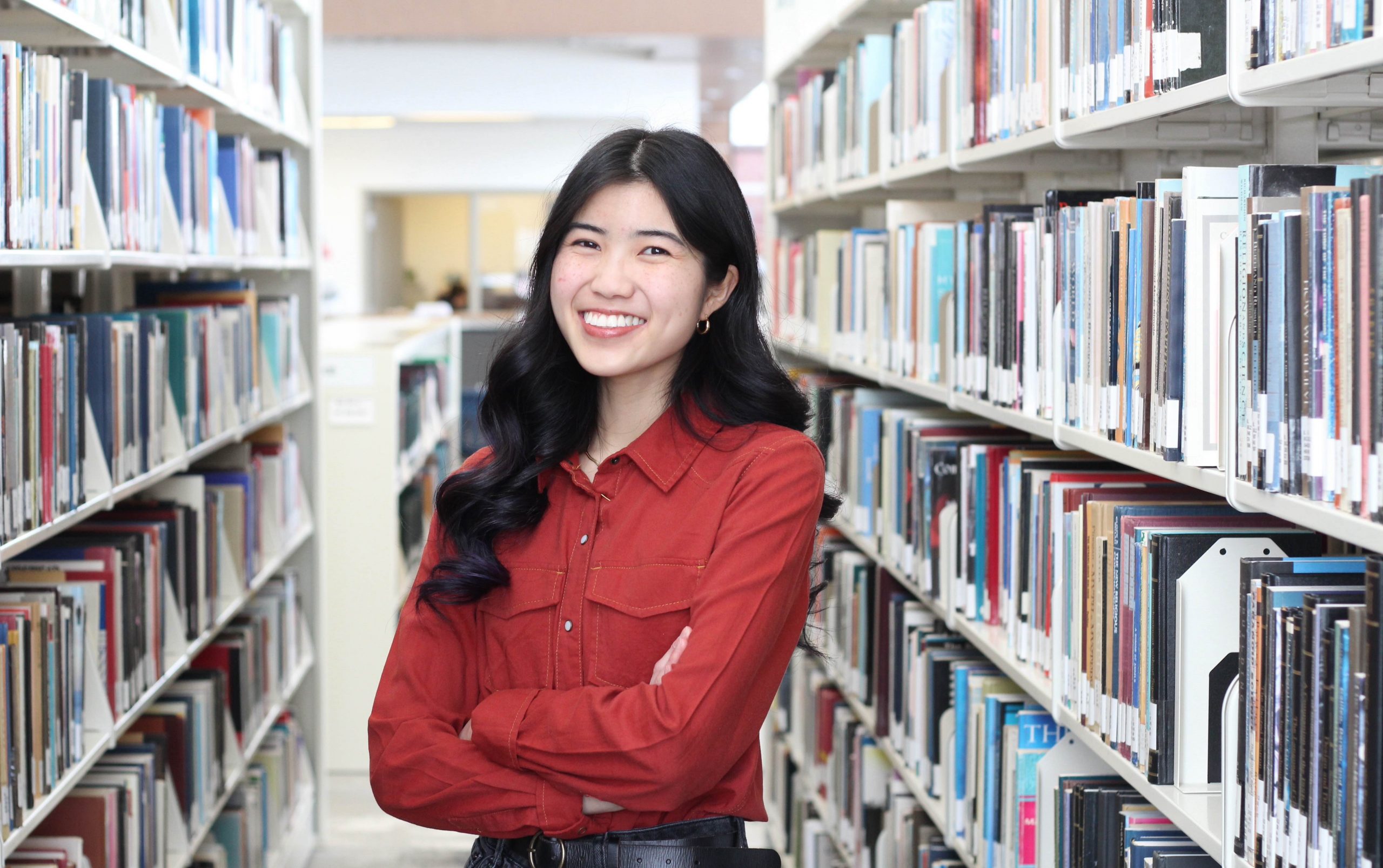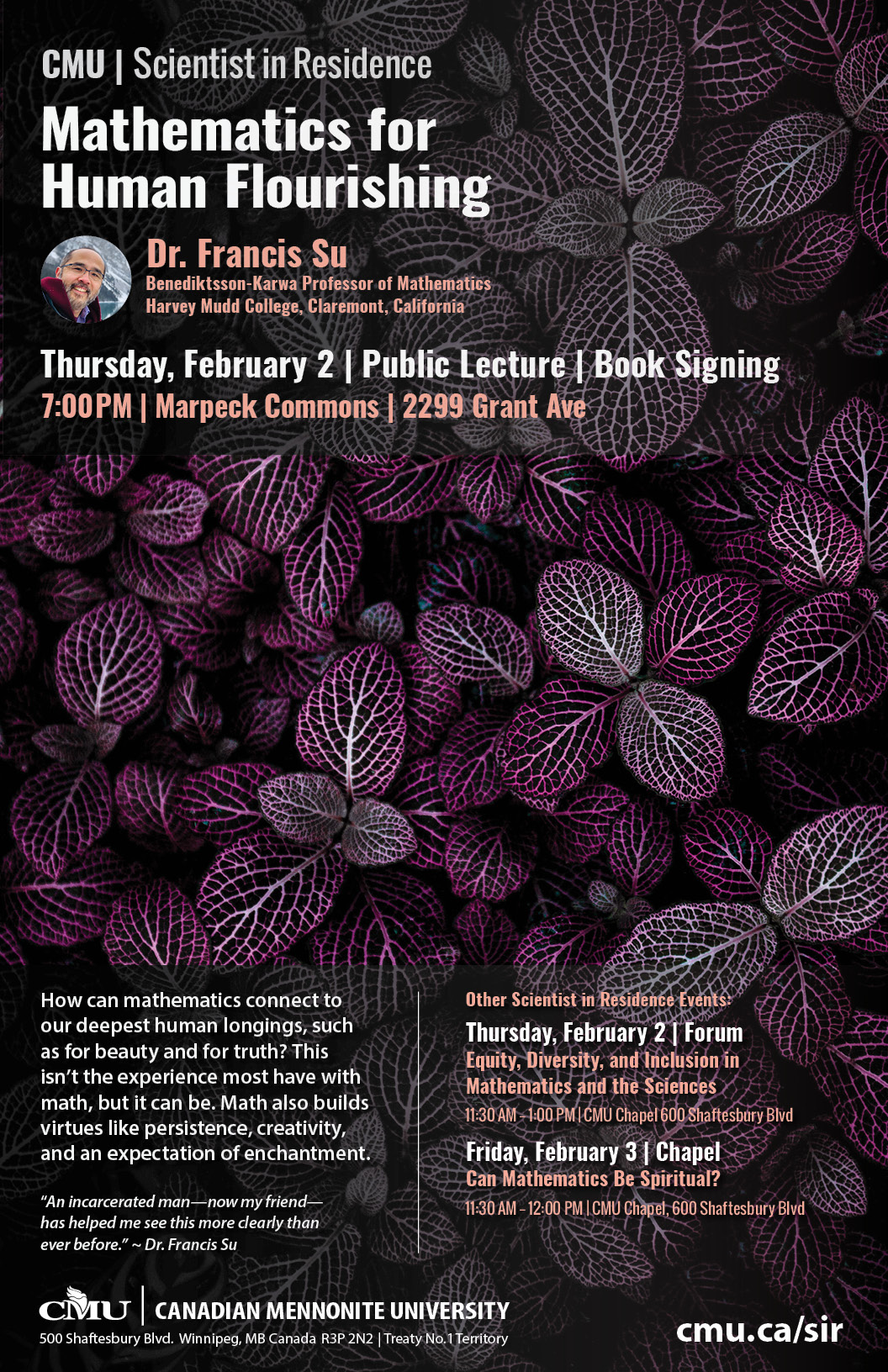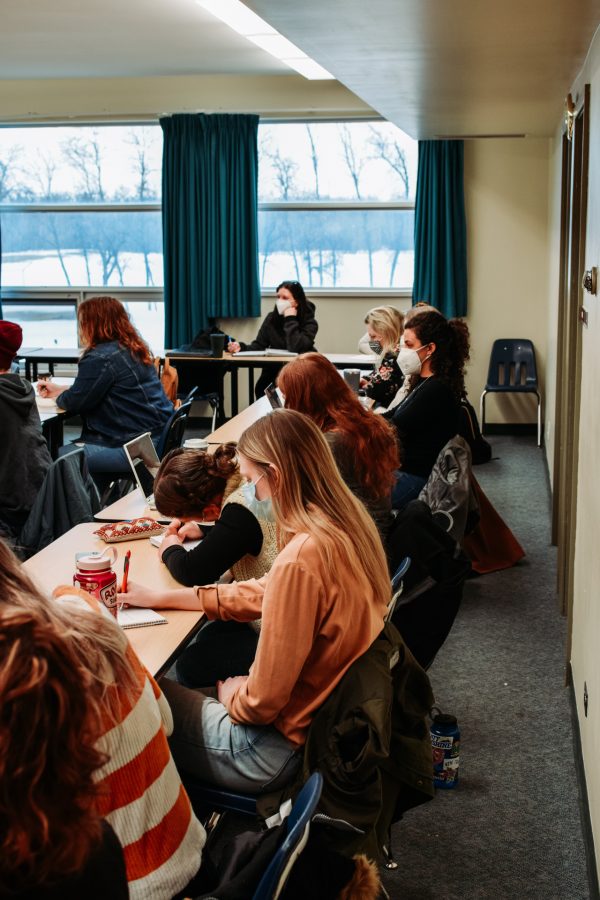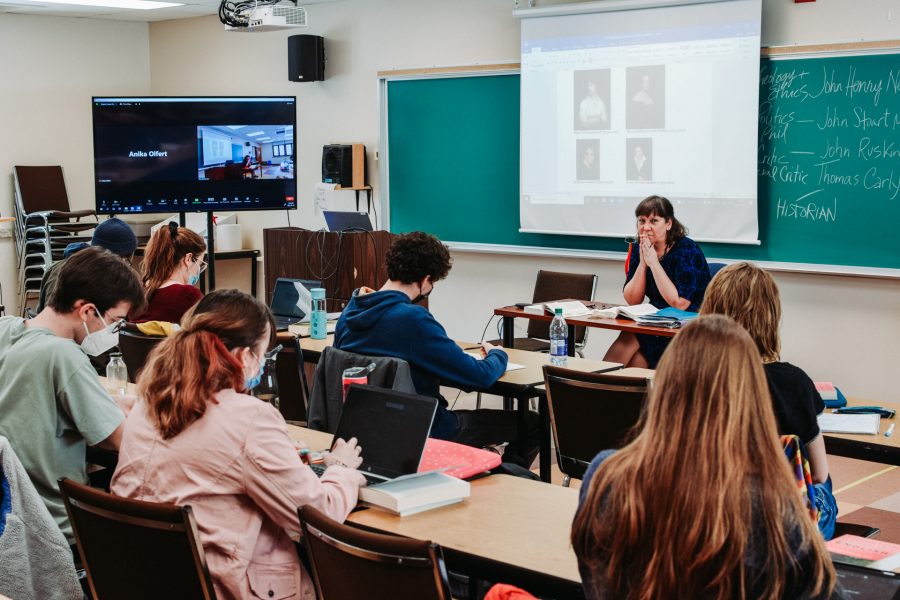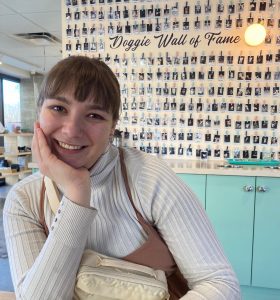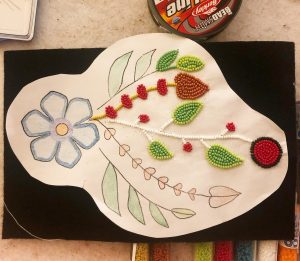CMU recently introduced a new intercultural program for undergraduate students called Estamos. This past fall, six students joined the program and made their way to Guatemala, where they lived, worked, and studied for three months. Upon their return, the Estamos cohort had the opportunity to share their experiences with the community, inspiring other students to enroll in the program for fall 2023. Here are some highlights and memories from their time in Guatemala.
The best part of Estamos was waking up next door to one of the rarest ecosystems in the world. At 1,800 meters of elevation, the rainforest stretches high above the lowest clouds, which slowly drift through the trees and around the mountain ridges. Up in the cloud forest, the air is thick with moisture; orchids, mosses, and bromeliads cover nearly every available surface of the trees. I spent my practicum placement in the last month of Estamos at Community Cloud Forest Conservation, an organization that works to protect these unique ecosystems while alleviating poverty in the communities around them. After learning about the enormous biodiversity of tropical rainforests in classes, it was incredible to see it firsthand and find species every day that I had never seen before. I had the chance to work with people who knew all the intricacies of this forest, who could name every bird by a few notes of their song and could tell you all the traditional uses of any plant you chose. As a biology student, this was definitely my highlight.
– Malcolm Reimer, fifth-year Bachelor of Science, Biology major
Being part of the Estamos program gave me the opportunity to step out of my comfort zone on a daily basis and to be ready for anything to happen. The immersion component of the program allowed us all to live with host families, eat different foods than what we’re used to, and use the Spanish we were learning in the classroom as our only way to communicate with locals. We had the opportunity to visit so much of the country, including the Tikal ruins, the cloud forest, Guatemala City, Antigua, the beach on the west coast, and Lake Atitlan. My favourite part of the program was spending a whole month in a town close to Lake Atitlan where I had my volunteer placement. There, we were able to explore the other towns on the lake, travel around in the back of pick-up trucks and visit lots of local coffee shops!
– Peri Wiebe, fifth-year Bachelor of Arts, International Development Studies major

When I first heard about the Estamos program, I was interested but I didn’t think it was something I would actually be able to do. It was very outside my comfort zone, something I had never done before… But as time went on, I couldn’t stop thinking about the possibility of going, so I took a chance and went! Now that I’m back, I can honestly say that it was one of the best decisions I have ever made. I got a chance to live independently, away from friends and family back home, and figure out who I was on my own. In doing so, I learnt a lot about myself. I also got to do all sorts of crazy fun things that I would never do here, like climbing ancient ruins or hiking up a volcano, going paragliding or releasing baby turtles into the ocean! All of that, plus being totally immersed into a new culture, made it an experience of a lifetime for me. And through it all, I bonded with the people I travelled with and created strong friendships with them. I am forever grateful for that experience and it is something that I know will stick with me for a very long time.
– Kayla Chartrand, fifth-year Bachelor of Arts, Psychology major
A big highlight from my time in Guatemala was exploring its many different landscapes, including mountainous terrains, volcanoes, black sand beaches, busy cities, jungles, rural Indigenous villages, and a cloud forest. For such a geographically small country it is amazing the diversity it has and I feel so lucky to have experienced such a variety of environments. What made these experiences so meaningful was that I was able to experience them alongside my host families and other in-country hosts. One memory that stands out specifically was our time at Community Cloud Forest Conservation, where we were able to explore the cloud forest and learn about the educational programs they were running at their site. We became immersed in learning alongside their teachers and students. One evening, I had the opportunity to participate in a research walk with some local and international researchers, and we found and documented a large venomous snake! The way they included me in their project was really neat and memories like this remind me of how thankful I am for all the people in Guatemala that made my time so meaningful.
– Mia Loeppky, second-year Bachelor of Arts, Social Sciences major
Spending the semester in Guatemala was more exciting and life-changing than I imagined! (Cliché… maybe. True… absolutely!) I went from speaking only English to learning and speaking Spanish! Learning another language in another country and trying to communicate in that language is a totally epic experience. There were so many memorable moments. We were fortunate to travel to many different parts of Guatemala and experience the diversity of the land, culture, and peoples. A highlight for me was when we moved to our host villages and experienced another way of life. This is where I lived with my second host family and completed my practicum in two different organizations. I learned traditional Indigenous ways of life, like weaving, shopping at markets, beading, squishing clay with my feet to build a bench, and cooking meals (there’s nothing like homemade tortillas!). Studying in Guatemala was incredible. I was not prepared to do the crazy activities we did or meet the most humbling people I have ever met or receive the gratitude I did in Panabaj. I will cherish our semester in Guatemala forever. #Estamos #DoIt!
– Ainsley Rowan-Keogh, fifth-year Bachelor of Arts, International Development Studies major
The application deadline to participate in Estamos 2023 is February 28. Visit cmu.ca/estamos for more information!


